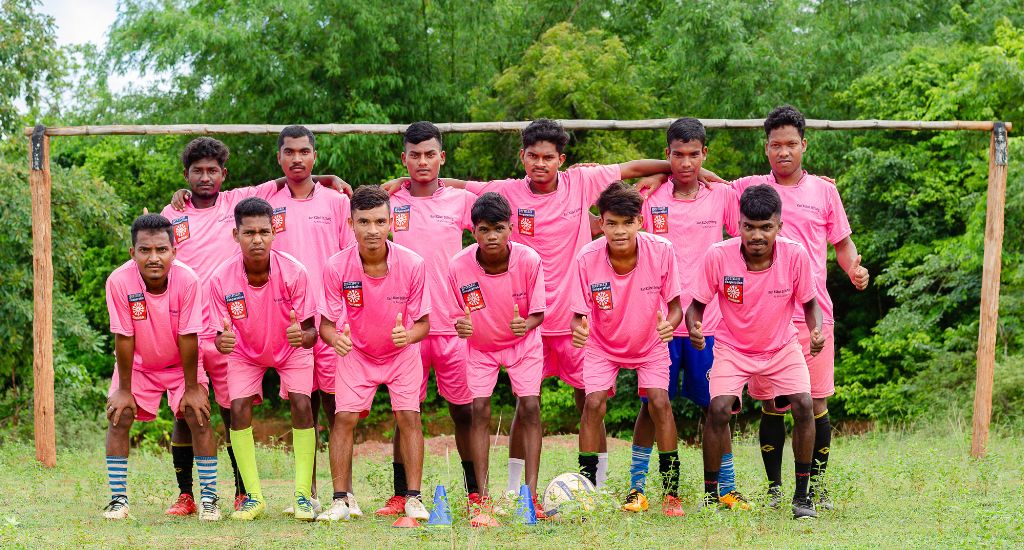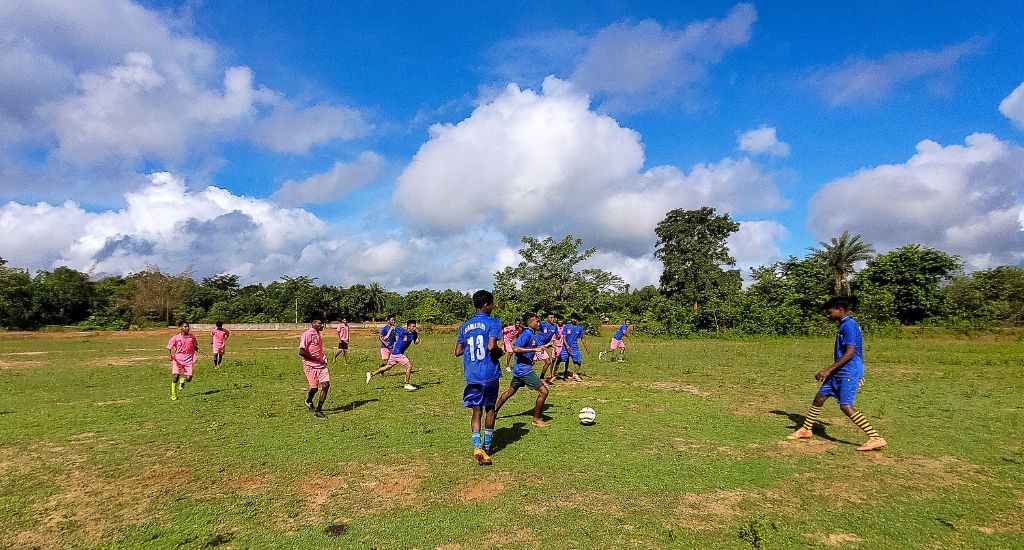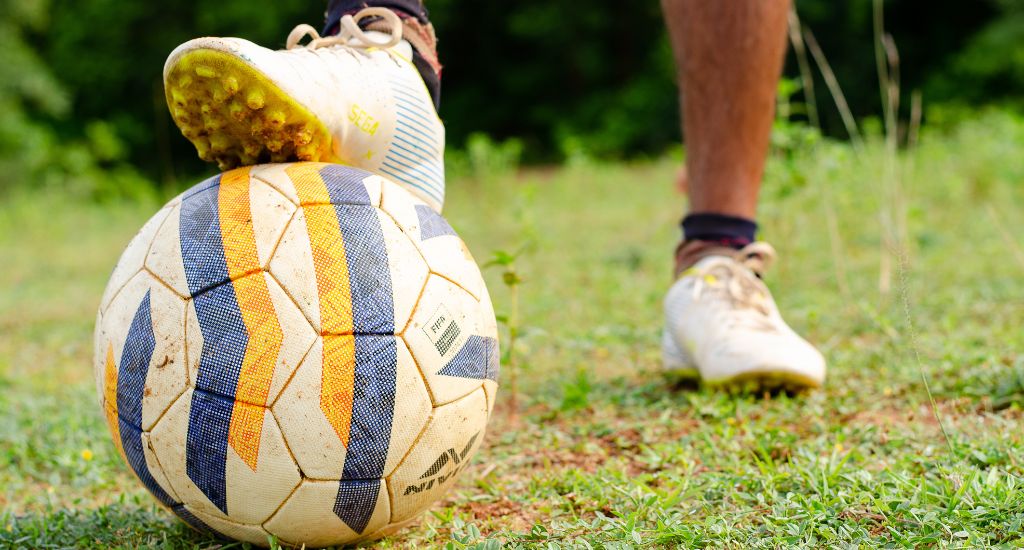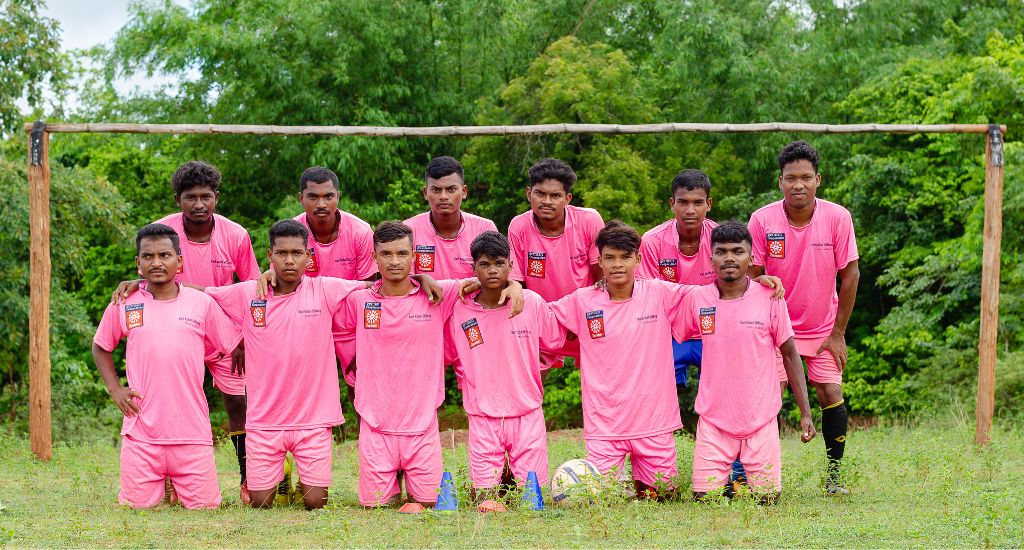
Football bridges social divides in Odisha village of Lodhas
In a village in Odisha where dominant tribal groups had set unwritten rules of divisive boundaries, a unique social transformation of inclusion is taking place through football.

In a village in Odisha where dominant tribal groups had set unwritten rules of divisive boundaries, a unique social transformation of inclusion is taking place through football.
On the outskirts of Lodadihi village in Maroda block of Mayurbhanj district in Odisha, a wide patchy ground surrounded by lush green forests has been the village’s playing ground for generations.
The field has seen villagers – young and old, girls and boys – play multiple sports over the years, the most common being football.
But the field timings were divided. Girls and boys had separate play time, as did the different communities residing in the village. But for the past few months, the playground has been witnessing a social transformation that transcends societal barriers.
Lodadihi village is home to the Lodha tribe – formerly regarded as a denotified criminal tribe and now classified as a particularly vulnerable tribal group (PVTG) in Odisha. For generations, Lodhas in Odisha faced challenges in gaining social acceptance within their village. Marginalisation marred their coexistence with the dominant tribal communities.
Also Read: Stigmatized Lodha tribe starts new life trajectory

“Our classrooms were generally separate. Members of my community had a different section in school. There was an unspoken sense of exclusion and we refrained from mingling with the other kids. It had existed for generations and we just followed the same,” said Chandan Naik (19), a school dropout.
“The Lodha children face several challenges in integrating with the majority. Prejudices, stereotypes and historical animosities have contributed to the deep-rooted social barriers. So they miss out on educational opportunities, social events and community gatherings,” said Anil Pradhan, member-secretary of Sikshasandhan, an NGO working for the development of Lodhas in Odisha.
He said that such a lack of integration perpetuated a sense of alienation among the Lodha children, hindering their overall growth and development.
But using football as a tool, young children and youth from the Lodha community are changing the social equation, one goal at a time.
Also Read: Young football coach helps girls kick their way to empowerment

Sikshasandhan provided training and sports gear and facilitated their integration with the main football team of the village. Young children and youths from the Lodha community were first trained in professional football and later integrated with the village team.
“Earlier we used to play football but in our own hamlet,” said Chandan Naik, who is now a part of the village team that participates in multiple district level and other tournaments.
He not only plays with youth from the other tribal groups but also encourages younger children from the Lodha community to embrace the camaraderie and shed the age-old differences in Odisha.
Another player, Littu Naik, who also dropped out of school after class VIII and worked in Jammu as a construction worker, feels that the sport is bridging a generational gap.
“We now play together and organise tournaments too. We have been encouraging the younger generation as well to join us and play football. For our parents as well, it’s a big step. This is a slow revolution for us,” he said, marking the social transformation of Lodhas in Odisha.
Football tournaments and events have become a platform for the Lodha children and children from other tribal groups to interact, compete and cooperate as teammates.
Elders from the Lodha community feel that these joint gatherings create opportunities for cultural exchange and break down stereotypes that have long perpetuated divisions among Lodhas and other tribal groups in Odisha. Beyond the playing field, these events instil a sense of camaraderie and unity, further strengthening the social fabric of the communities.
Also Read: Santhal girls shatter social taboo playing football

Pramila Paramanik’s 13-year-old son and 10-year-old daughter play in the village teams. But as the village has only a primary school up to class V, her children are enrolled in a residential school in Morada block. For her, letting her children play football meant gaining more respect.
“Our history dictates the behaviour that is shown towards us. At times we are treated as untouchables. We hardly did anything to change our situation. But seeing our children play together with a sense of belonging makes us very happy,” said Paramanik.
Continued efforts to expand these initiatives, coupled with broader awareness campaigns on the importance of inclusion, have led to a more harmonious and integrated society.
“When we started working here, people from the community would run away to the forest and refrain from any conversations. The women wouldn’t talk at all. The first step was to make them comfortable enough to share their stories. The second step was to ensure social integration for the next generation,” said Swagatika Bhuyan, project coordinator, Sikshasandhan.
As the ball continues to roll, the journey towards a more inclusive and united community gains momentum, proving that when people come together to celebrate diversity, transformational change is possible, both on and off the pitch.
Also Read: Girls join football clubs to resist child marriages in rural Bihar
The lead image at the top shows football is helping the Lodha tribal children and youth integrate with the other dominant tribes (Photo by Divya Vilvaraj)
Aishwarya Mohanty is an independent journalist based in Odisha. She reports on the intersection of gender, social justice, rural issues and the environment. She is also a Rural Media Fellow powered by Youth Hub.